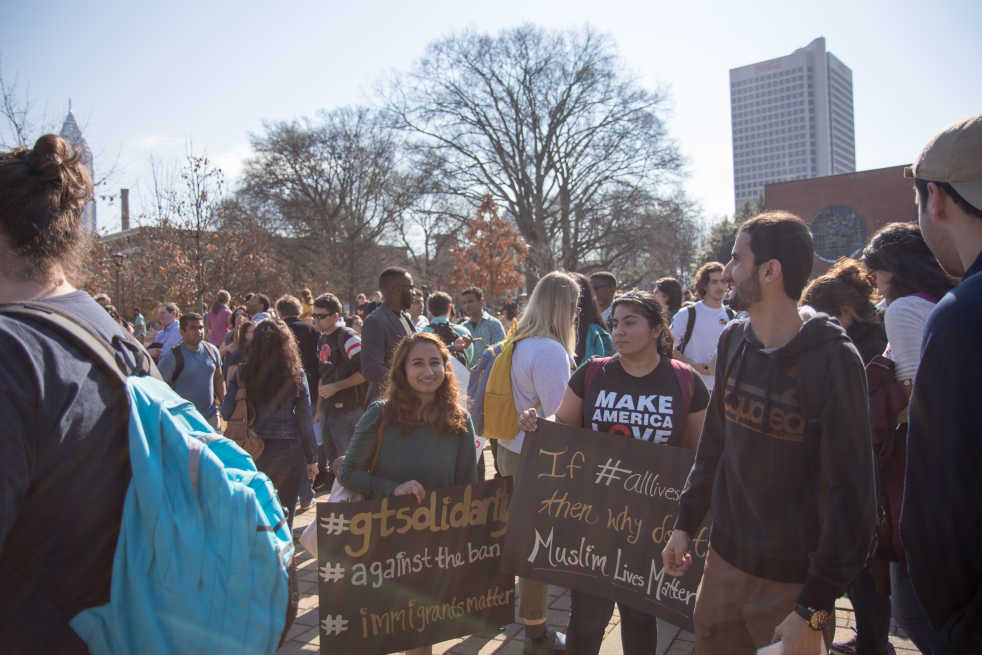President Trump signed an executive order on Monday that will replace the temporary ban placed on immigrants from seven middle eastern countries put out in January. This new order, while the rhetoric coming from the Trump administration is still relatively the same from the first order, the provisions and implementation are different. The executive order will go into effect March 16th, in the hopes that the mass chaos across airports nation-wide that occurred in January will not be repeated.
One of the major changes at first glance to this ban is that it now only covers 6 countries. Iraq was taken off the list by the urgings of Defense Secretary Jim Matis, who claimed that keeping Iraq on the list would deter coordination in defeating the Islamic State. The ban also exempts permanent residents (green-card holders), and current visa-holders. There was also a drop in the language that was viewed as preferential treatment of ‘religious minorities,’ assumed to refer to Christians, in the screening process. Unlike in the initial ban, there is also no longer an indefinite halt on Syrian refugees, replacing it with a 120-day freeze that can be renewed or updated.
From what it seems, this new order essentially took a more buttoned-down look at the ‘America first’ rhetoric that the Trump administration has been promoting and packaged it neatly into a ban that will be harder to argue against in court. By having the hindsight of more than a month of criticism on the first order, the President and his circle of advisors were able to lock down a potentially more effective ban than the first go-around. Margaret Huang, the executive director of Amnesty International USA, said in a statement that the new order would “cause extreme fear and uncertainty for thousands of families by, once again, putting anti-Muslim hatred into policy.”
Critics of the President Trump say that these executive orders and his statements on ‘extreme vetting’ of refugees into the United States blatantly ignores the already rigorous screening measures. The ban also seemingly ignores the fact that none of the recent terror attacks on American soil were executed by nationals of any of the six countries put on the order.
Already this week, Hawaii and Washington state have stated that they will challenge the ban on the federal circuit. Attorneys general from Oregon as well as New York have stated that they intend to challenge the ban’s legality as well.
Only time will be able to tell the lasting effects of this order and what, if anything, the court system will be able to do about it.
